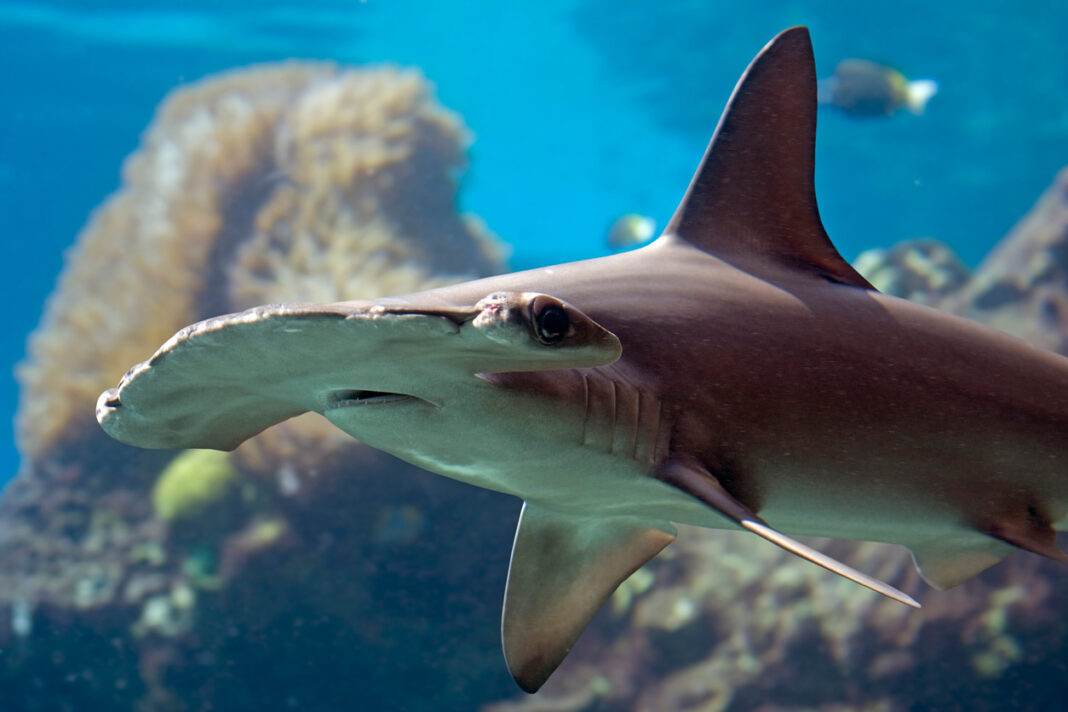A recent report has alleged fins from endangered hammerhead sharks caught in Australian waters are possibly being illegally traded to international partners.
The report by the Australian Marine Conservation Society (AMCS) and Humane Society International (HSI), found in 2017, fins from up to 3,700 individual endangered scalloped hammerheads and 2,900 individual endangered great hammerheads were recorded by importing countries with no corresponding export record from Australia.
AMCS shark scientist Dr Leonardo Guida said that the uncovered discrepancies suggest poor and inaccurate recording processes that don’t meet international requirements.
“At worst it’s exposing shady dealings in shark fin from endangered scalloped and endangered great hammerheads,” Dr Guida said.
“The disappearance of hammerhead meat from export data is also a concern. If it’s not being exported, where’s the tens of tons of meat from an endangered shark ending up every year? On Aussie plates as ‘flake’? Perhaps straight to the bin?”
HSI marine biologist Lawrence Chlecbeck said that there needs to be improvements in protections of scalloped and great hammerheads by having them listed as ‘endangered’ under Australian law.
They are currency classed as ‘conservation dependent’, meaning they can be commercially exploited.
“It’s vital that the international trade of hammerheads meets international requirements that are in place to ensure that trade doesn’t come at the detriment of the species’ survival,” Dr Chlebeck said.
Dr Guida said that the conservation of hammerheads has declined since the last Australian Government review in 2014 which assessed how fisheries deal with the hammerheads.
“Incredibly useful scientific information has come to light, and all the while we still haven’t got a proper grip on exactly how many hammerheads are being plucked from the water,” he said.
The AMCS and HSI report revealed that not one jurisdiction in Australia had fully met recommendations set out by the 2014 review to improve fishery practices to minimise the ongoing catch of hammerheads.
Based on the report’s findings, both bodies are calling on the Australian Government to urgently review its recording and monitoring of the shark product trade.
“If Australia is serious about claiming to have sustainable fisheries, we’ve got to give endangered species the protections they deserve under law and lift our game when it comes to monitoring and reporting trade data,” Dr Guida said.
“These are fundamentals – protect what’s being driven to extinction and make sure that when you look at the numbers, it all adds up.”
To read the report, visit marineconservation.org.au



